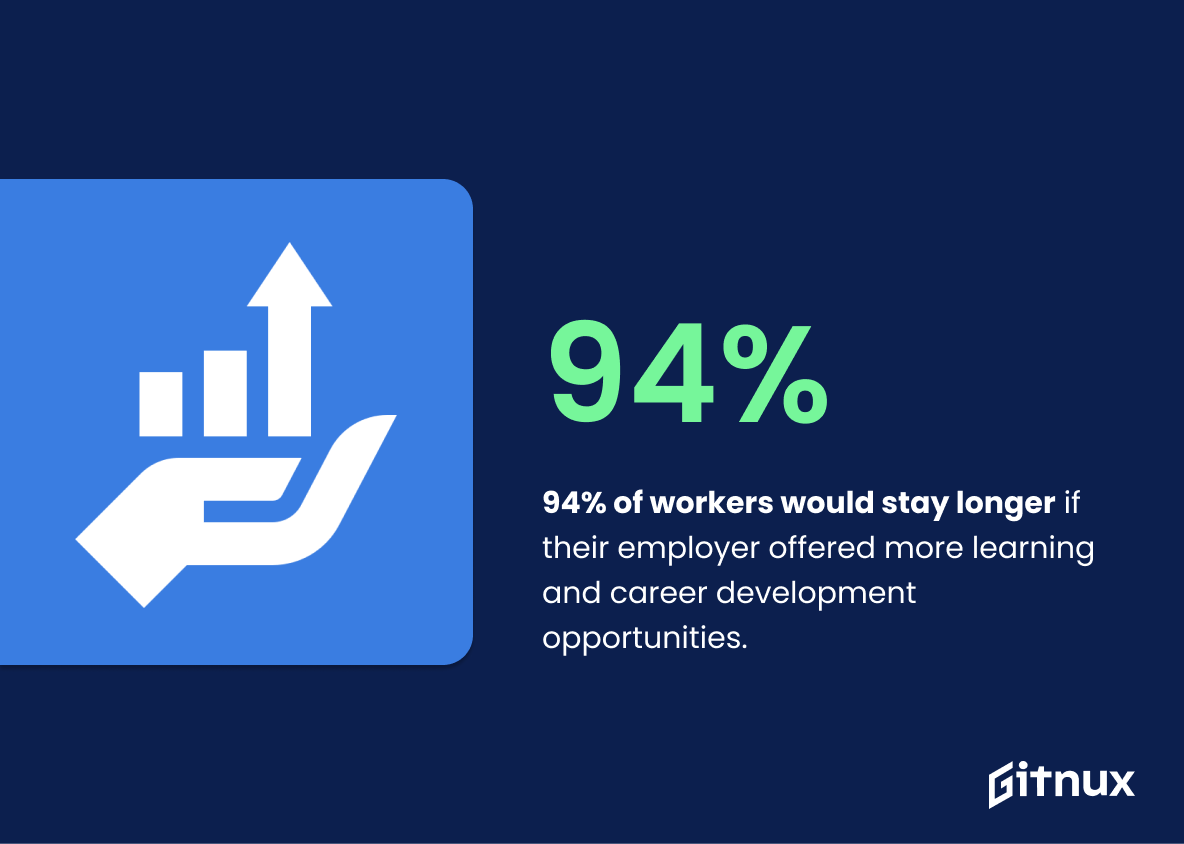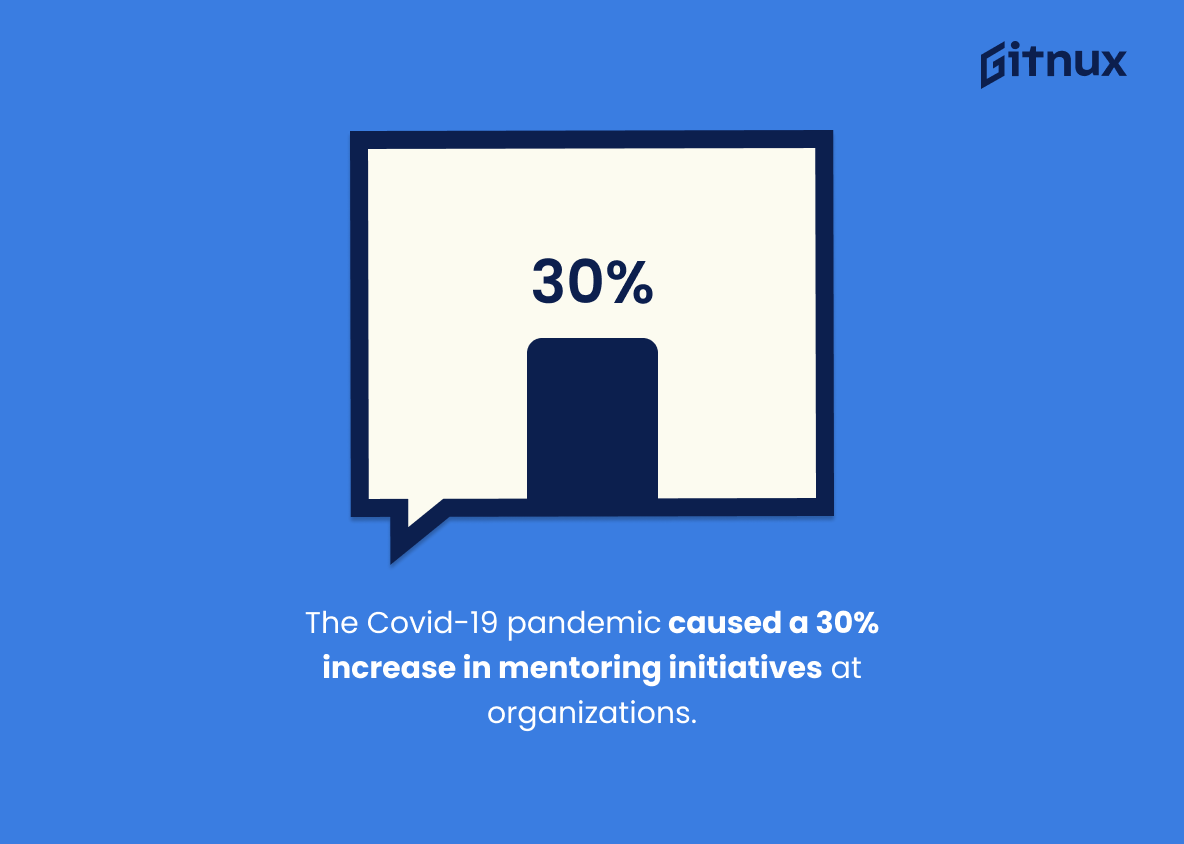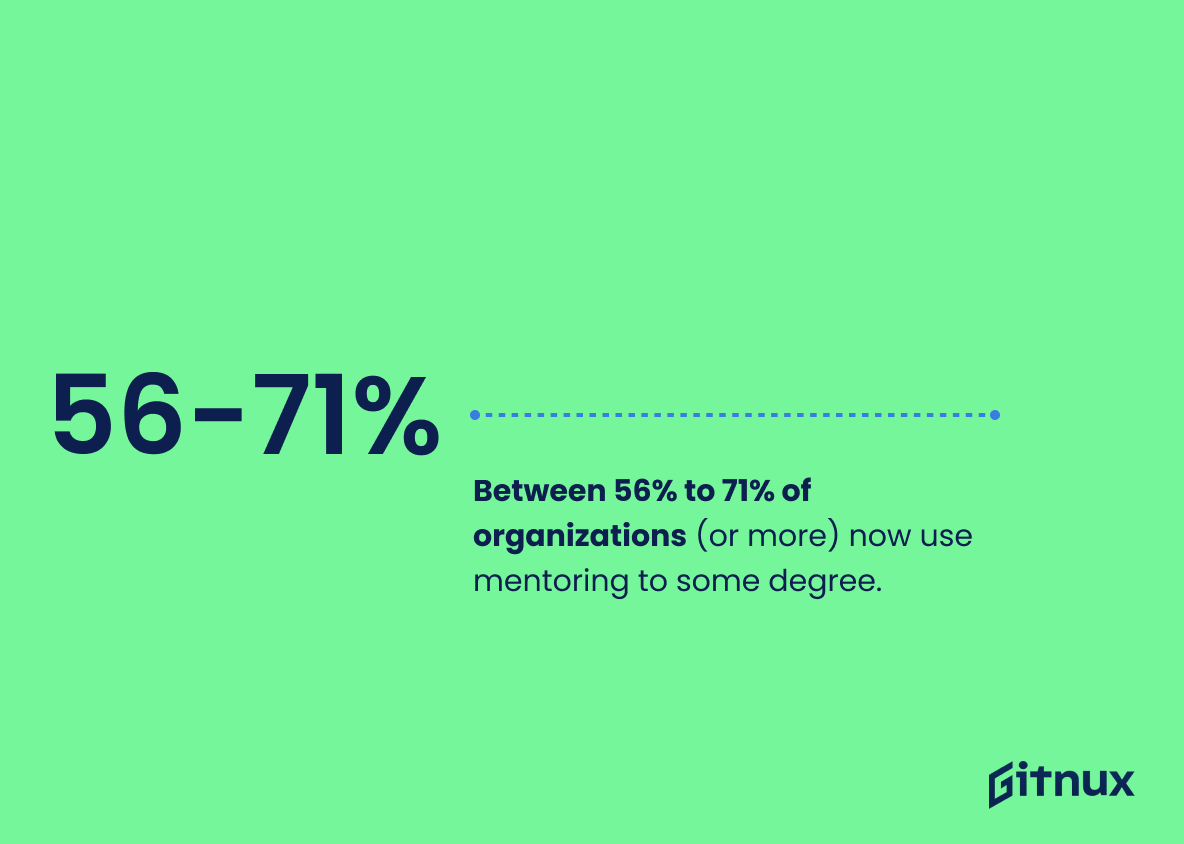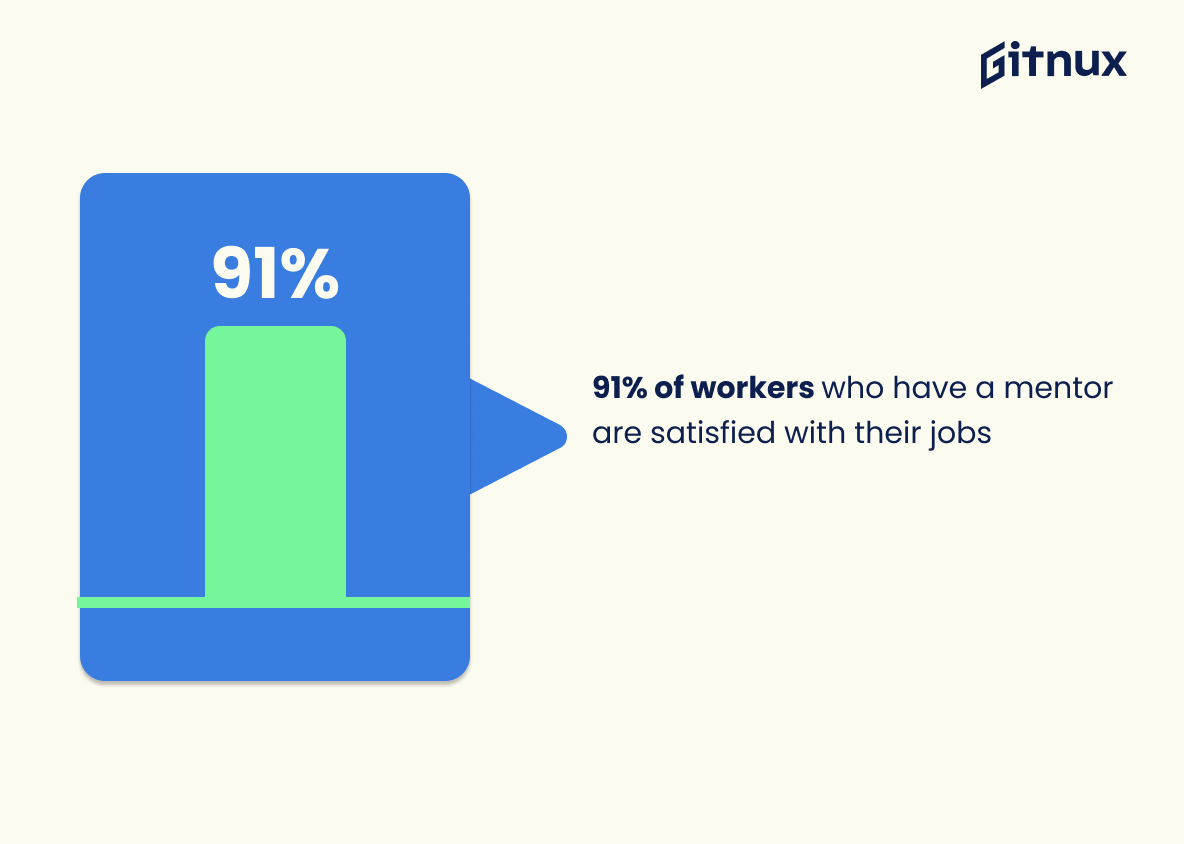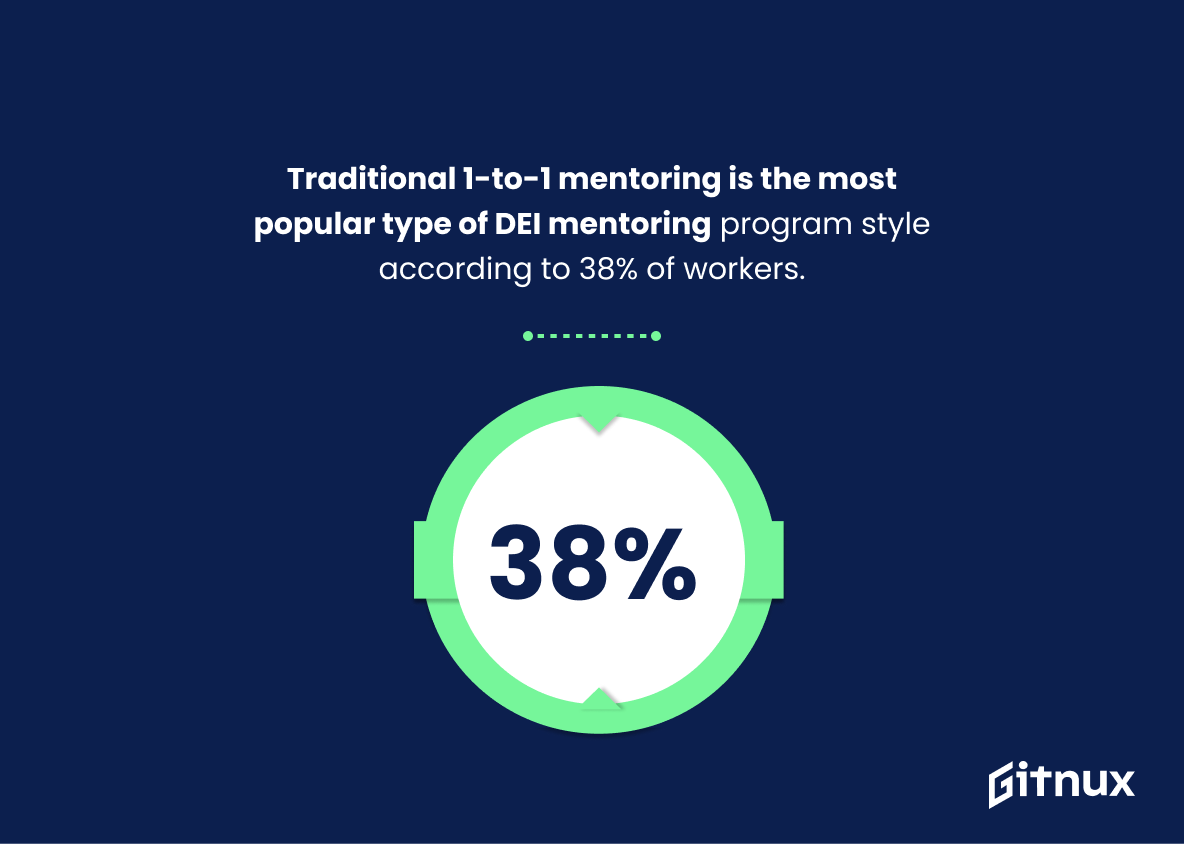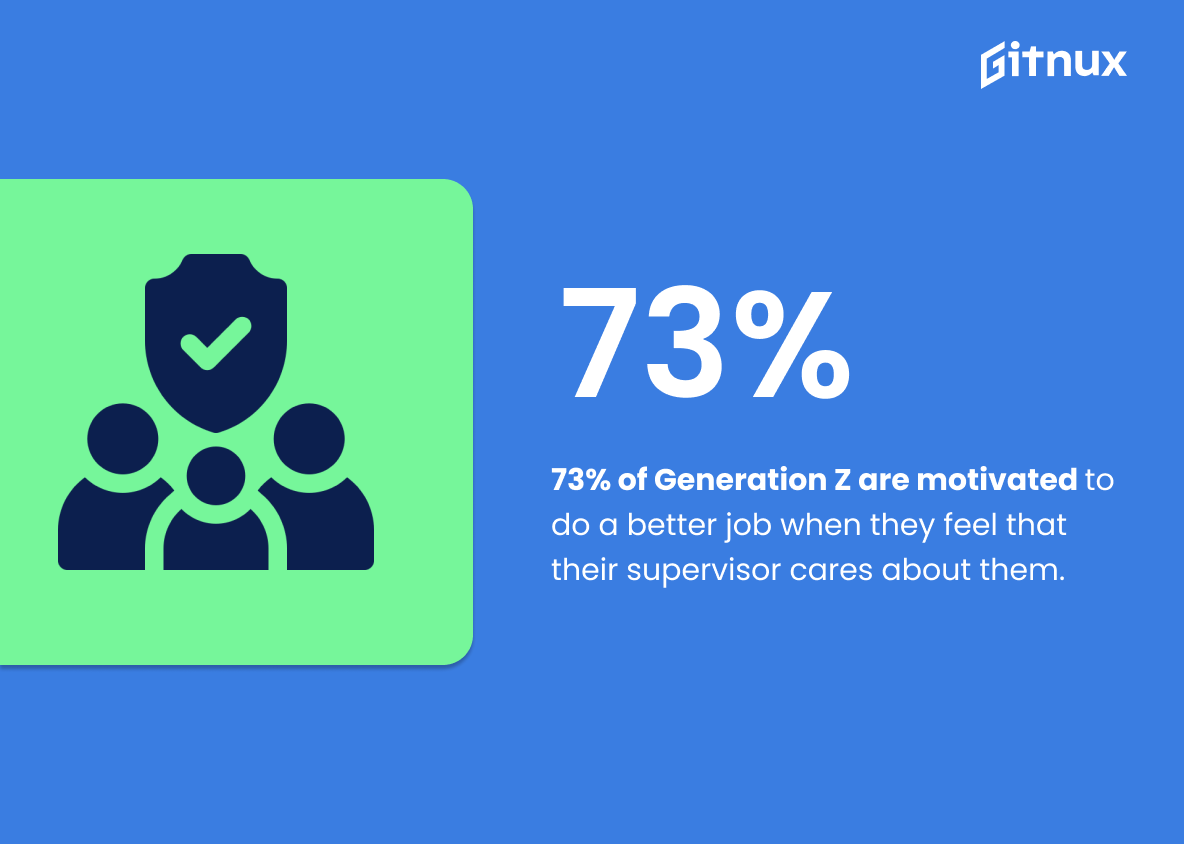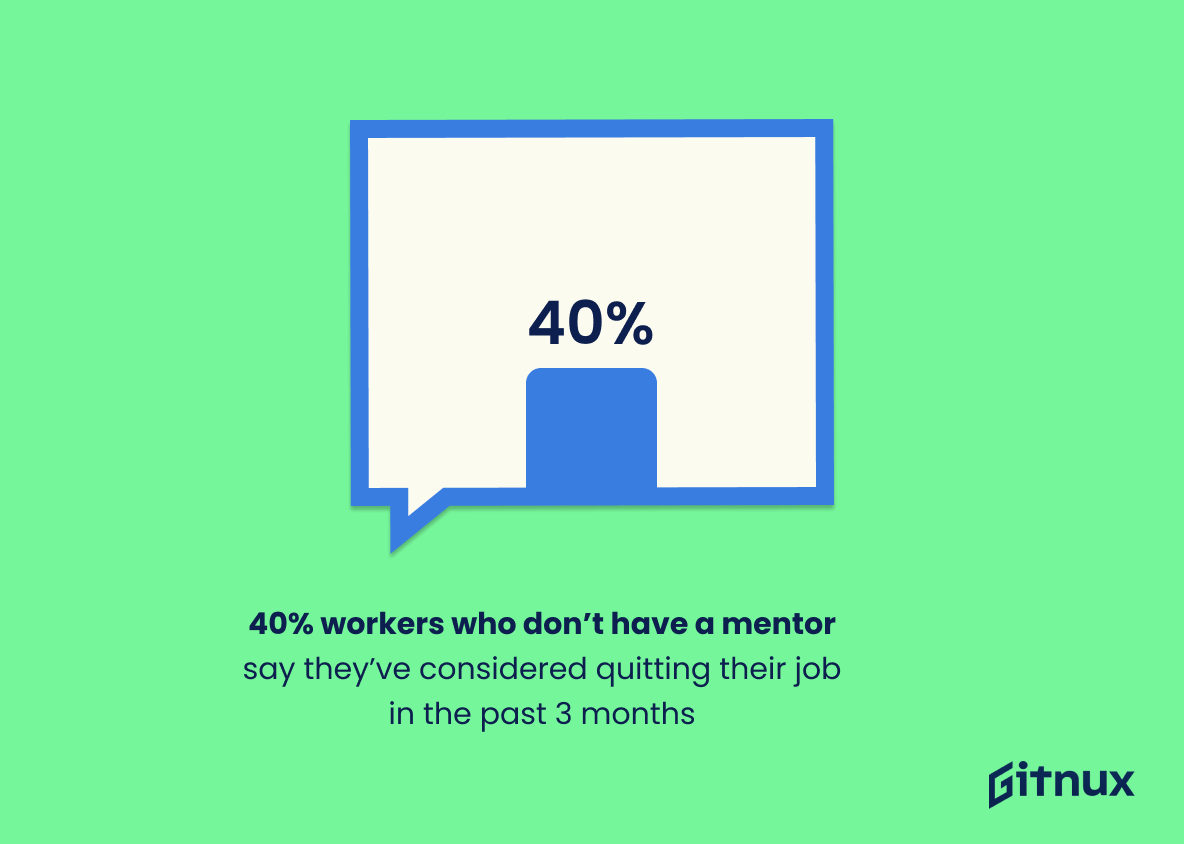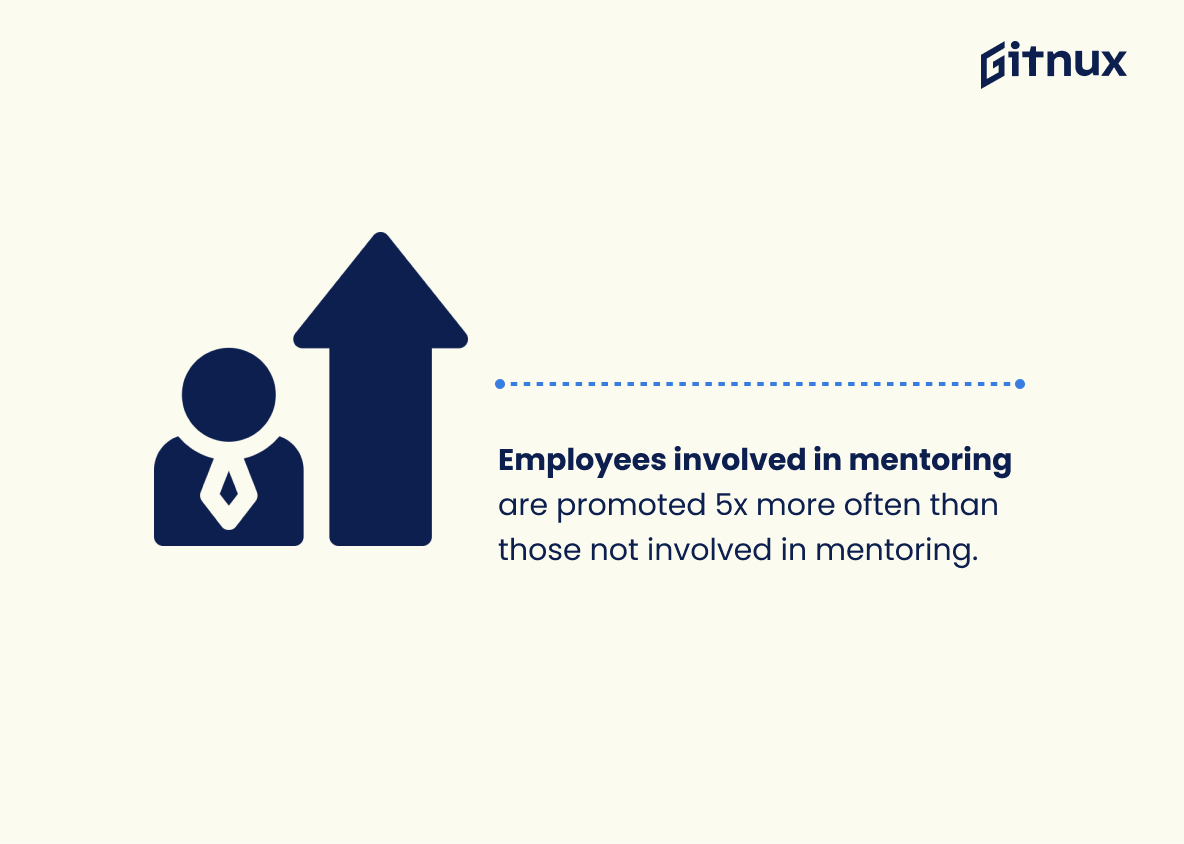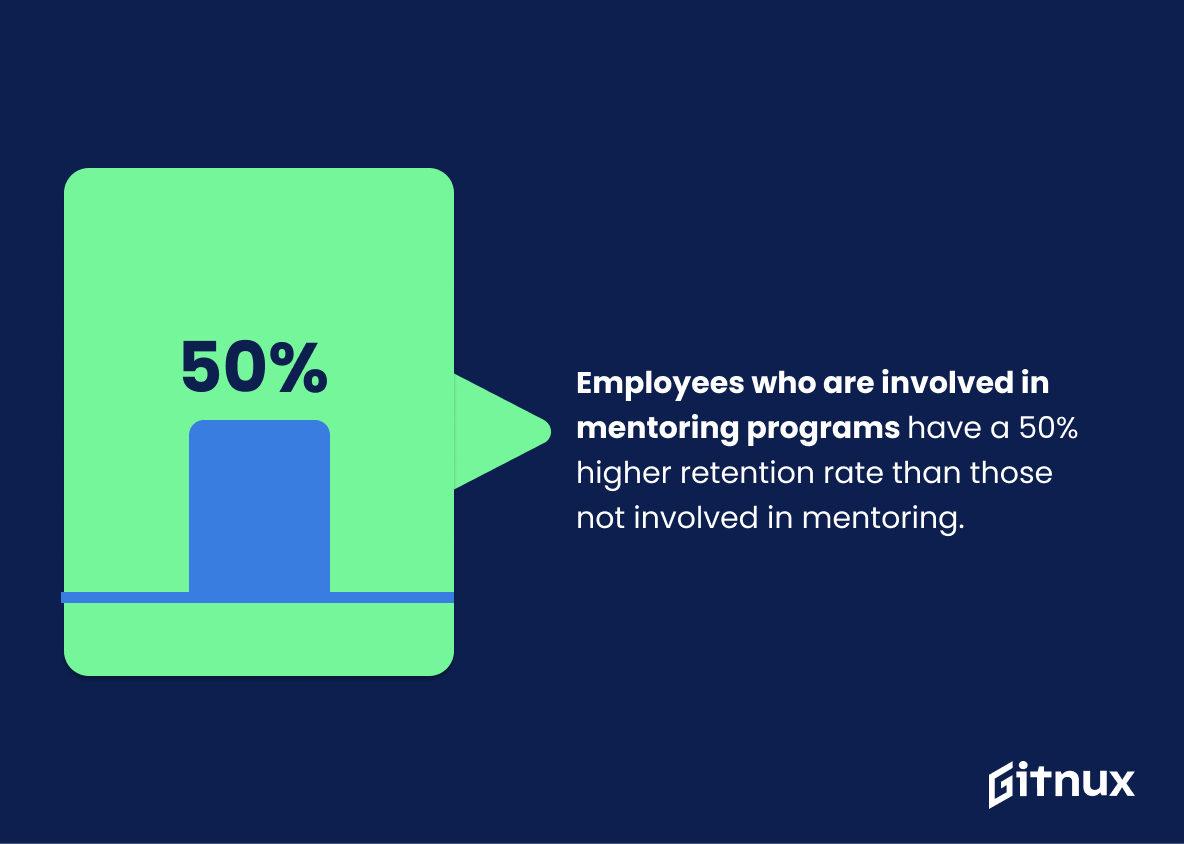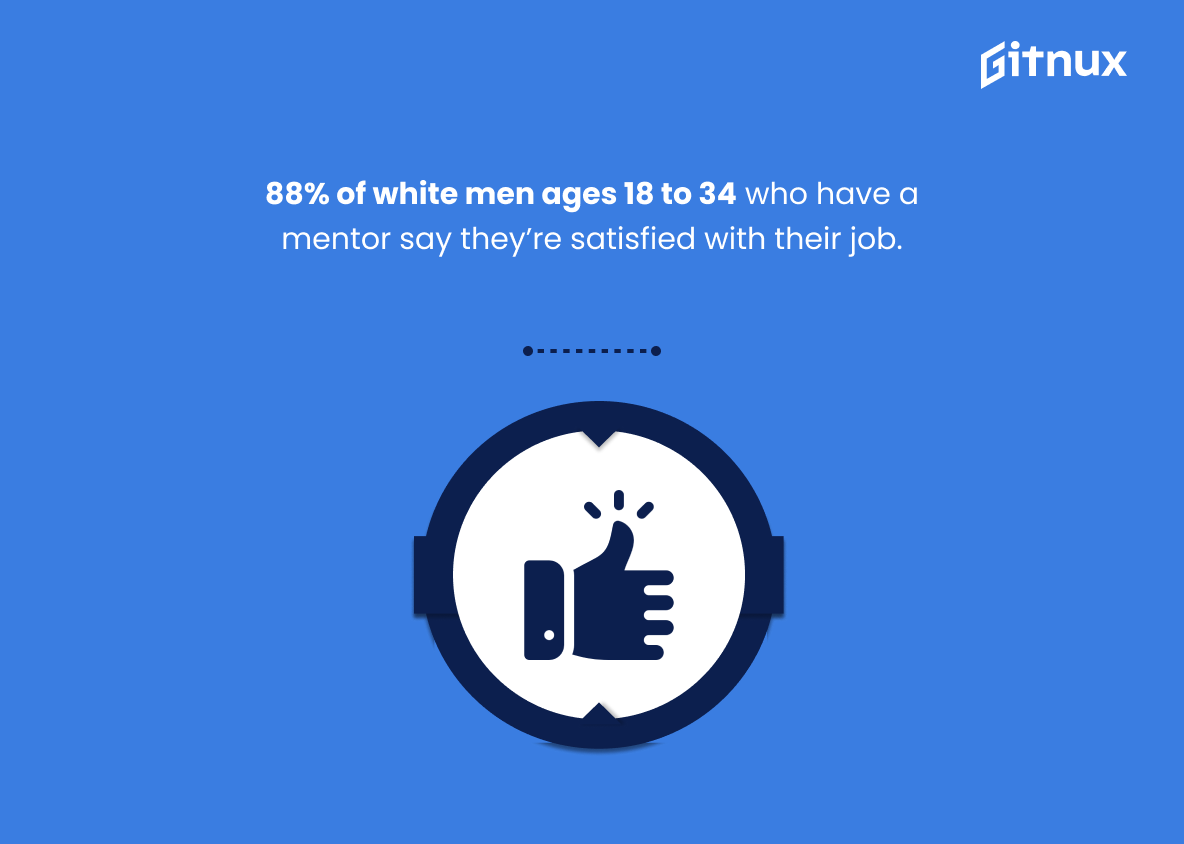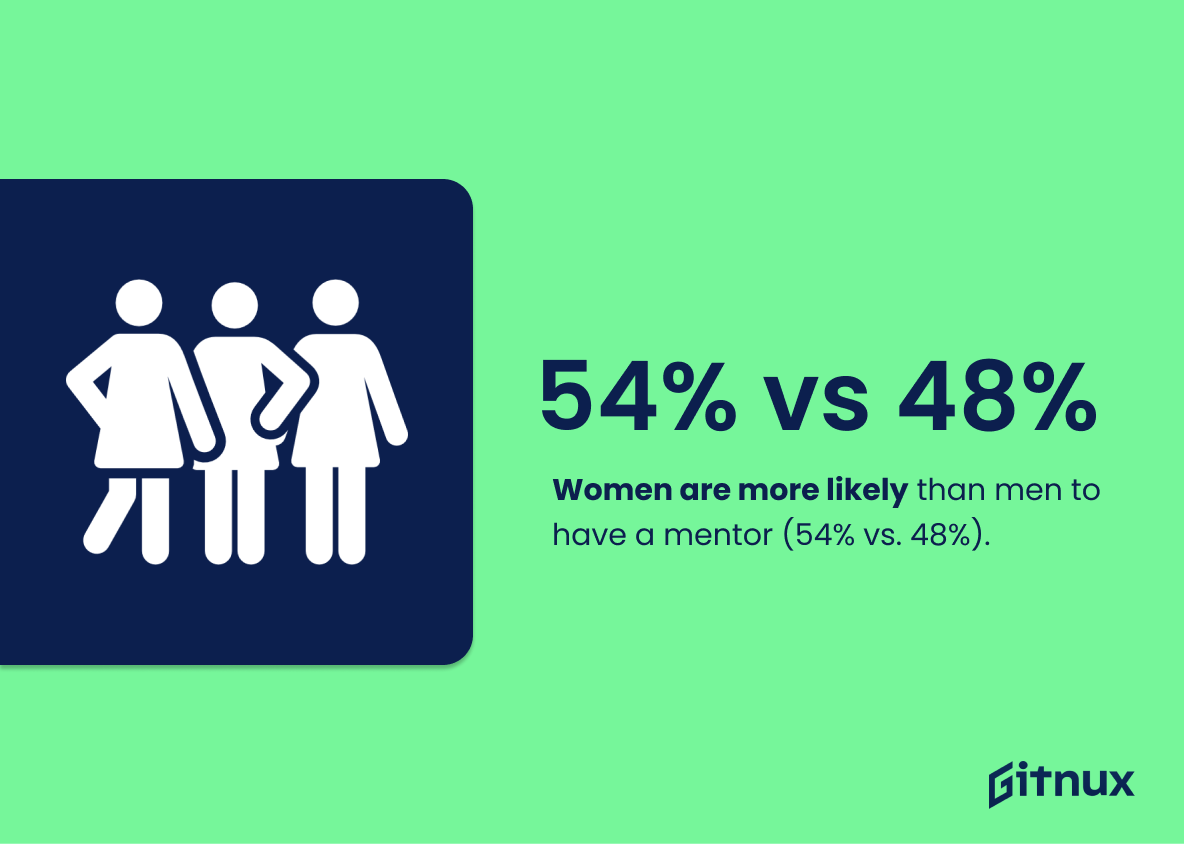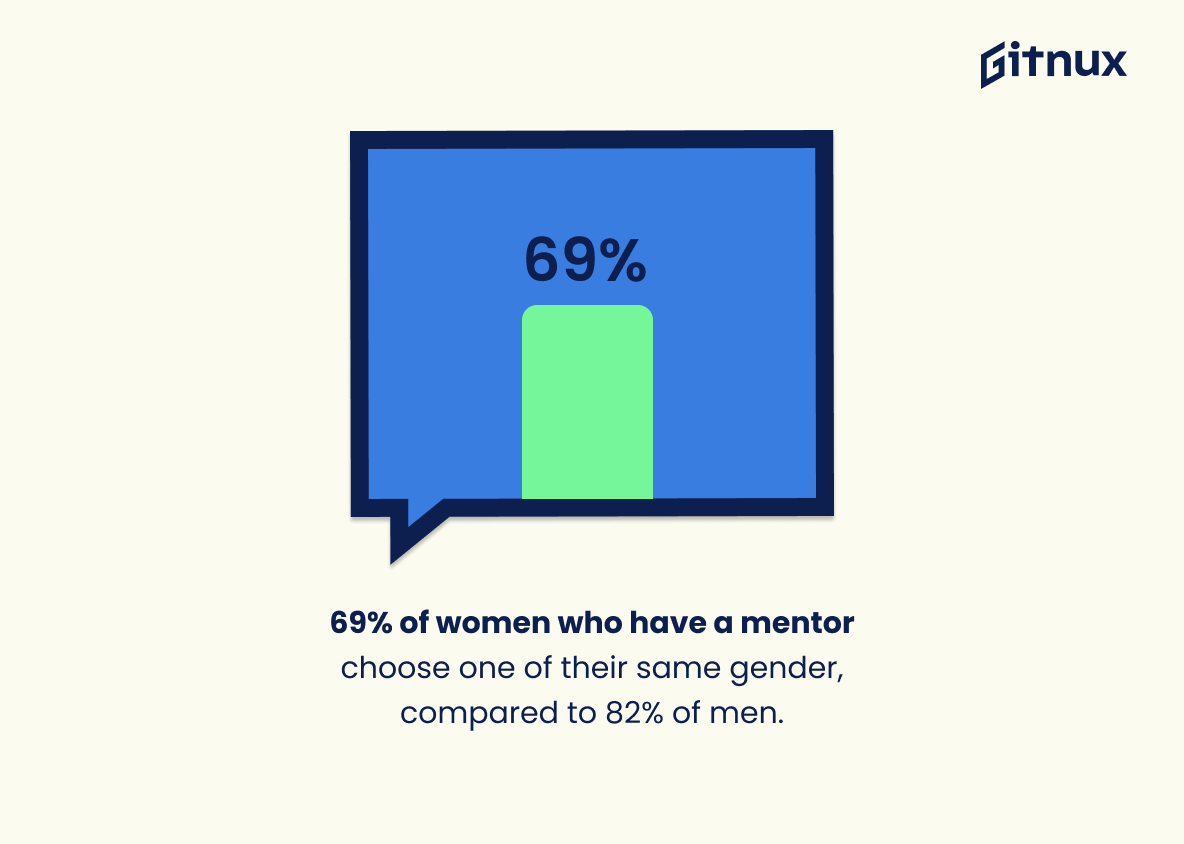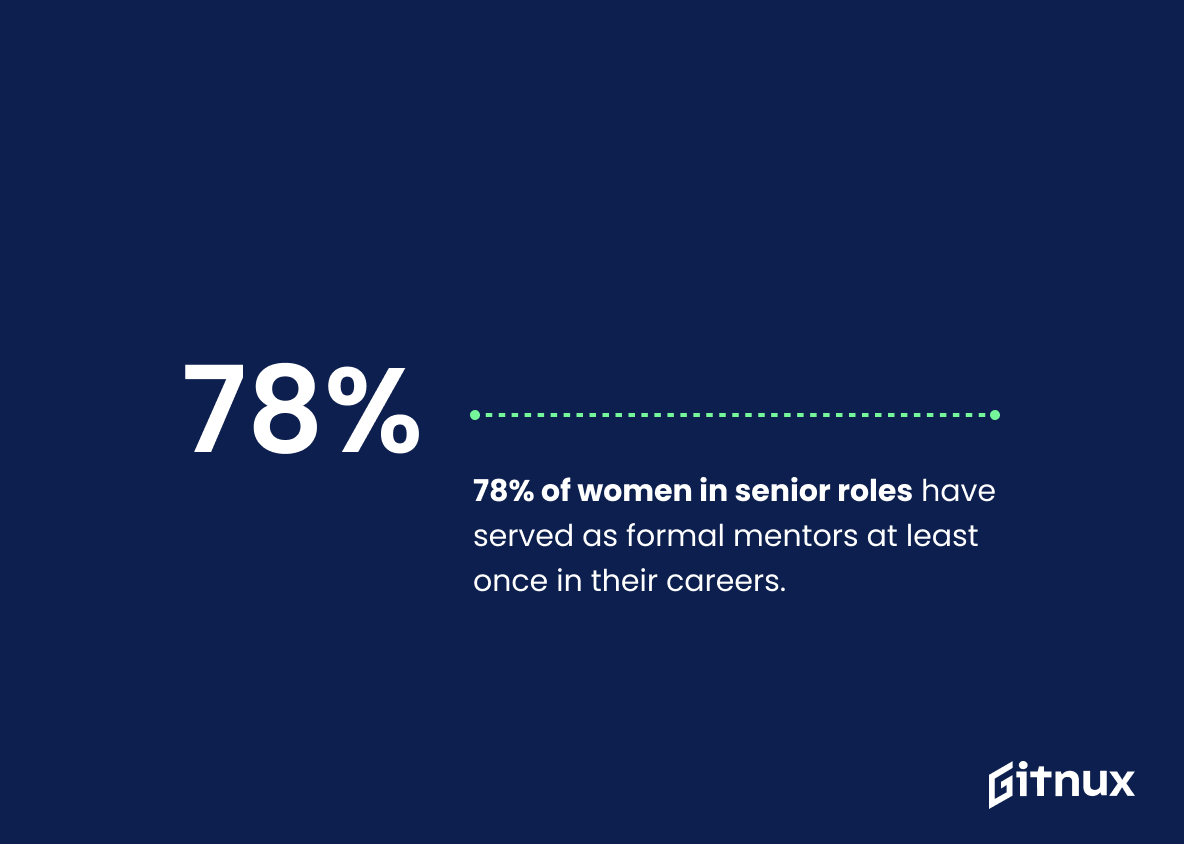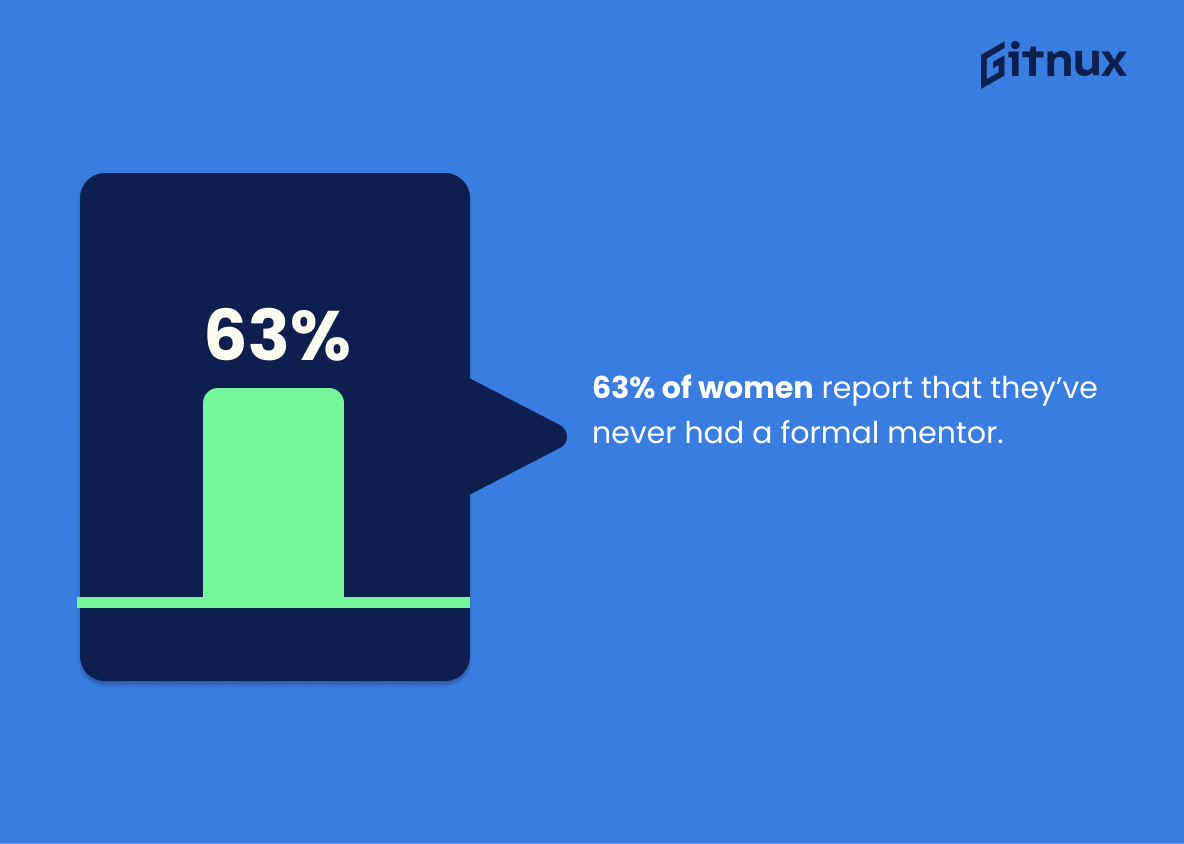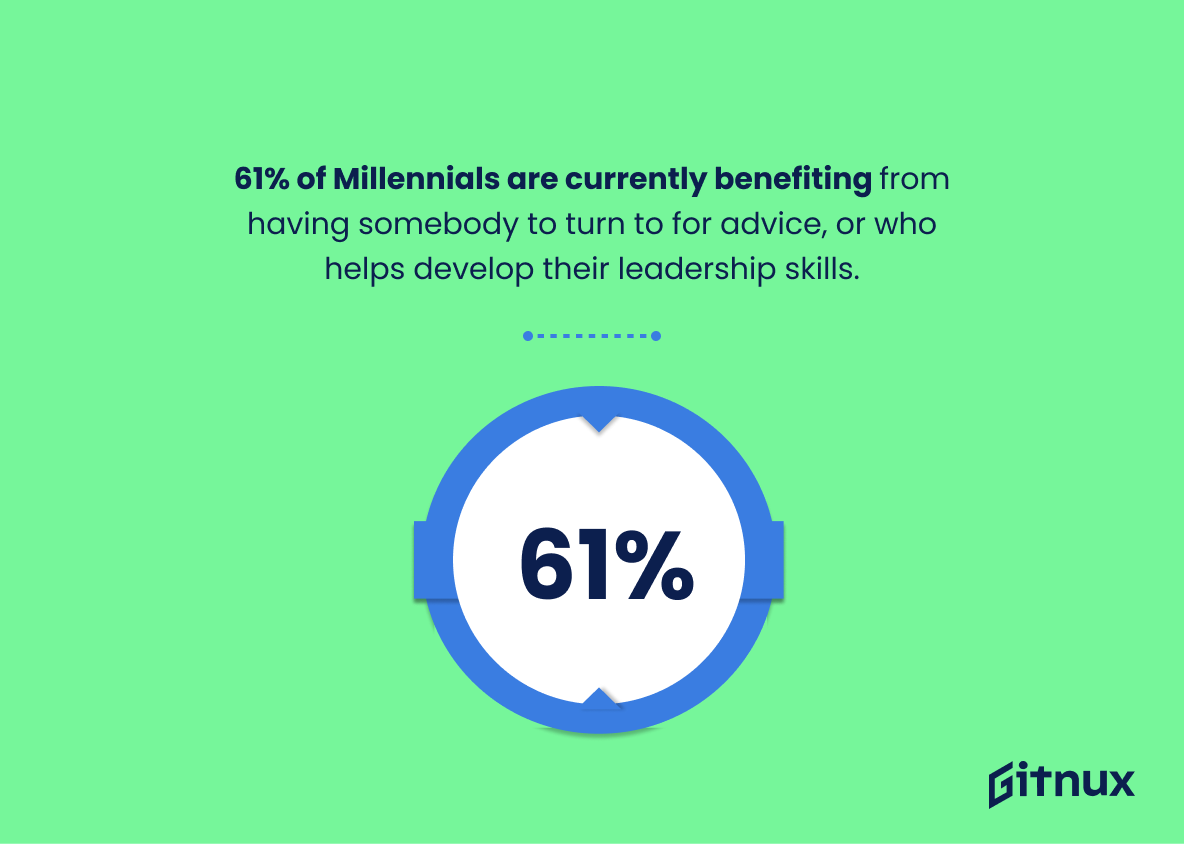Workplace mentoring gets more and more popular in the business world. Companies see the benefits it can bring to their employees and the business. Numerous studies show that mentoring improves employee productivity and satisfaction, and help people to grow professionally and stay loyal to their employers. In this article, you will find all the important workplace mentoring statistics you were searching for.
Workplace Mentoring: The Most Important Statistics
94% of workers would stay longer if their employer offered more learning and career development opportunities.
91% of mentees experience competency improvement in one or more of the areas that they worked on in their mentoring relationship.
Employees who are involved in mentoring programs have a 50% higher retention rate than those not involved in mentoring, and 93% of mentees believe their mentoring relationship was useful.
General workplace mentoring statistics
94% of workers would stay longer if their employer offered more learning and career development opportunities.
Mentoring is now #4 on a list of learning and development strategies L&D teams are looking at. That’s an increase from #6 in the 2021 survey and the largest rank increase of any other strategy on the list.
The Covid-19 pandemic caused a 30% increase in mentoring initiatives at organizations.
Between 56% to 71% of organizations (or more) now use mentoring to some degree.
81% of people with a mentor say that their mentor works in the same industry, and 61% state that their mentor works at the same organization.
91% of workers who have a mentor are satisfied with their jobs, including more than half (57%) who are “very satisfied.” Among those who don’t have a mentor, each of those numbers drops by double digits.
Traditional 1-to-1 mentoring is the most popular type of DEI mentoring program style according to 38% of workers. That’s followed closely by 31% who most desire 1/1 reverse mentoring.
80% of workers believe that inclusivity, sponsorship, allyship, participation, and skill-building are key drivers for DEI mentoring programs.
Those intending to stay with their organization for more than 5 years are twice as likely to have a mentor (68%) than not (32%).
73% of Generation Z are motivated to do a better job when they feel that their supervisor cares about them.
Olivet Nazarene University surveyed 3,000 people and only 56% of them have/or had a professional mentor. From the experience perspective, mostly the mentees are junior-level employees (57%), compare to mid-level (35%) and senior-level employees (8%).
Mentorship impact on a worker’s career
71% of employees with a mentor say their company provides them with excellent or good opportunities to advance their career, while just 47% of those without a mentor say the same.
40% workers who don’t have a mentor say they’ve considered quitting their job in the past 3 months, compared with just 25% of those who do have a mentor.
90% of mentoring participants reported that the mentoring program helped them develop a positive relationship with another individual in the company. 89% of mentoring participants reported that mentoring allowed them to contribute to the success of their company. 94% of mentoring participants reported that the mentoring program demonstrates their organization’s commitment to providing career options and opportunities.
According to SurveyMonkey, workers with a mentor are more likely than those without to say they’re well paid (79% vs. 69%) and to believe that their contributions are valued by their colleagues (89% vs. 75%).
According to Sun Microsystems study, 25 % of mentees experienced positive changes in salary grade, compared to 5% of those without a mentor. Among mentors, 28% had positive salary grade changes, compared to 5% of those not participating in mentoring.
Employees involved in mentoring are promoted 5x more often than those not involved in mentoring. Those who serve as a mentor are 6X more likely to be promoted to a higher position.
91% of mentees experience competency improvement in one or more of the areas that they worked on in their mentoring relationship.
88% of mentors and mentees agree that their productivity or effectiveness increased due to their current mentoring experience. 83% of mentors and mentees said that their mentoring experience positively influenced their desire to stay at their organization.
Employees who are involved in mentoring programs have a 50% higher retention rate than those not involved in mentoring, and 93% of mentees believe their mentoring relationship was useful.
Mentorship among different demographic groups
88% of white men ages 18 to 34 who have a mentor say they’re satisfied with their job, compared with 66% who don’t have a mentor. Similarly, 95% of non-white women ages 45 to 54 who have a mentor say they’re satisfied with their job, compared with 82% who don’t have a mentor.
According to SurveyMonkey, women are more likely than men to have a mentor (54% vs. 48%). Asians, Hispanics and African Americans are more likely than whites to have a mentor (58%, 55%, 53% and 49%, respectively); Younger workers are more likely than older workers to have a mentor (66% of 18- to 24-year-olds vs. 38% of 55- to 64-year-olds, for example).
The payoff is especially high for younger workers and those at lower levels within organizations. Workers under age 45 who have a mentor report being satisfied with their job by margins of up to 20 % higher than workers of the same age who don’t have mentors. That margin decreases with age.
69% of women who have a mentor choose one of their same gender, compared to 82% of men.
78% of women in senior roles have served as formal mentors at least once in their careers.
63% of women report that they’ve never had a formal mentor.
Mentoring is having a positive impact and 61% of Millennials are currently benefiting from having somebody to turn to for advice, or who helps develop their leadership skills. This varies by market and appears more prevalent in emerging (67%) rather than mature (52%) economies.
Mentorship levels are particularly low in Australia, Germany, Canada, The Netherlands, and France, where only a minority of respondents said they have mentors.
Conclusion
According to information from the studies we mentioned here, workplace mentoring has proven itself as a great tool to help employees gain new skills and knowledge, develop leadership skills, and create a better working environment.
The numbers speak for themselves, workplace mentoring has only a positive impact on employees and companies as a whole, as it improves job satisfaction, employee engagement and productivity. Every employer should consider implementing workplace mentoring programs to help their employees develop and reach their full potential.
FAQ
What is mentoring?
Mentoring is a relationship between two people—a mentor and mentee—in which the mentor provides the mentee with guidance and support to help the mentee reach their professional goals.
How can mentoring benefit the workplace?
Mentoring can be beneficial to the workplace in several ways. It can help to increase productivity, foster employee development, and improve communication between team members. It can also help to reduce employee turnover and enhance morale.
How do I become a mentor?
Becoming a mentor typically involves signing up for a formal mentoring program, or volunteering to be a mentor. You can also apply to be a mentor through an organization such as MentorNet.
What are the roles and responsibilities of a mentor?
The primary role of a mentor is to provide guidance and support to the mentee. This can include offering advice and feedback, sharing resources and experiences, and providing encouragement and motivation.
What are the benefits of being a mentor?
Being a mentor can be a rewarding experience. It can help to expand your professional network, increase your knowledge and skills, and provide an opportunity to give back. It can also help to improve your communication and leadership skills.
References
LinkedIn: “Building the agile future”, cited in January 2023 (Source)
Donald H. Taylor: “L&D Global Sentiment Survey 2022: The Long Shadow Of Covid-19”, cited in January 2023 (Source)
LHH: “The State of Coaching & Mentoring in 2021”, cited in January 2023 (Source)
MentorcliQ: “40+ Definitive Mentoring Stats For 2023”, cited in January 2023 (Source)
Olivet Nazarene University: “Study Explores Professional Mentor-Mentee Relationships In 2019”, cited in January 2023 (Source)
CNBC: “Nine in 10 workers who have a career mentor say they are happy in their jobs”, cited in January 2023 (Source)
Deloitte: “The 2016 Deloitte Millennial Survey Winning over the next generation of leaders”, cited in January 2023 (Source)
SHRM: “Generation Z Seeks Guidance in the Workplace”, cited in January 2023 (Source)
Sun Microsystems: “Appendix E Mentoring Case Study”, cited in January 2023 (Source)
Coqual: “Get the high points on this research.”, cited in January 2023 (Source)
ZipDo, cited June 2023: Workplace Mentoring Statistics
